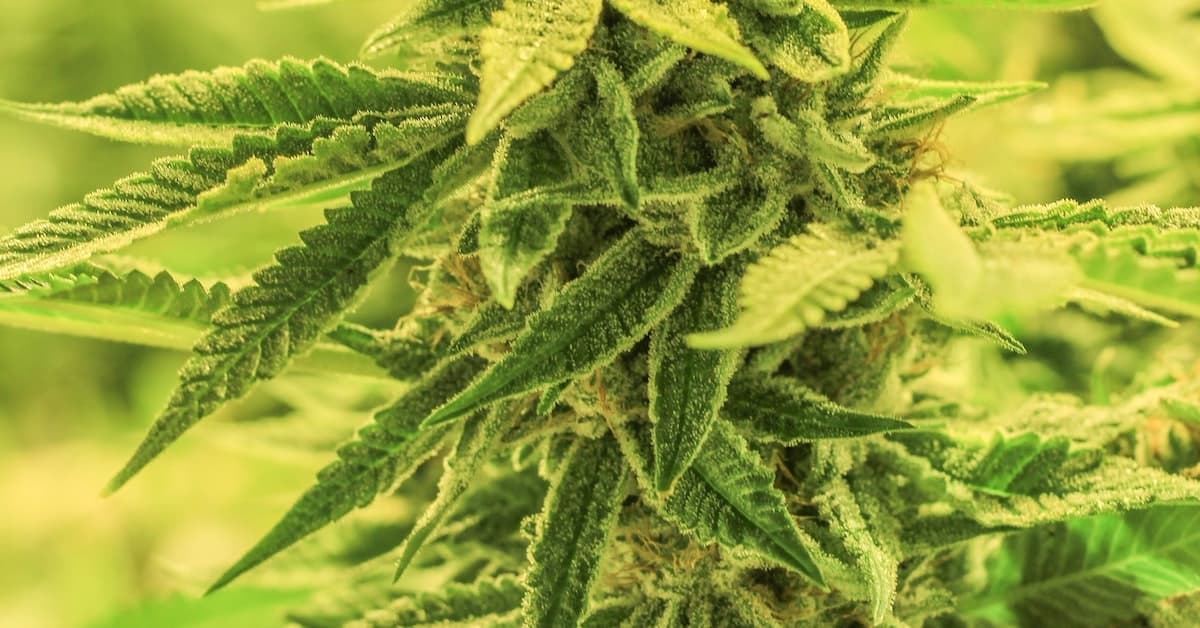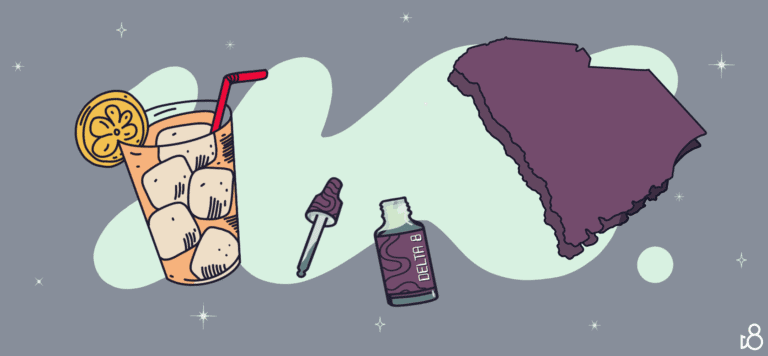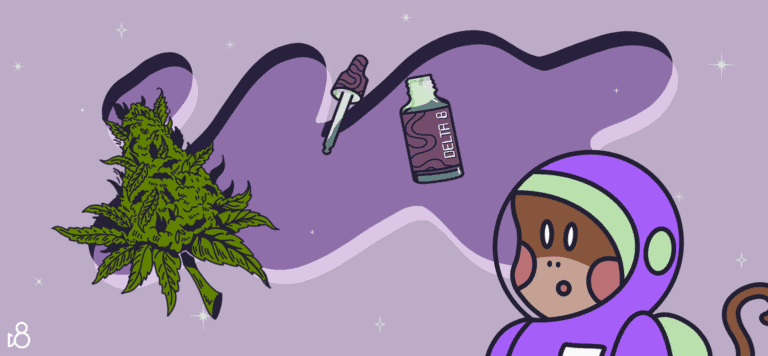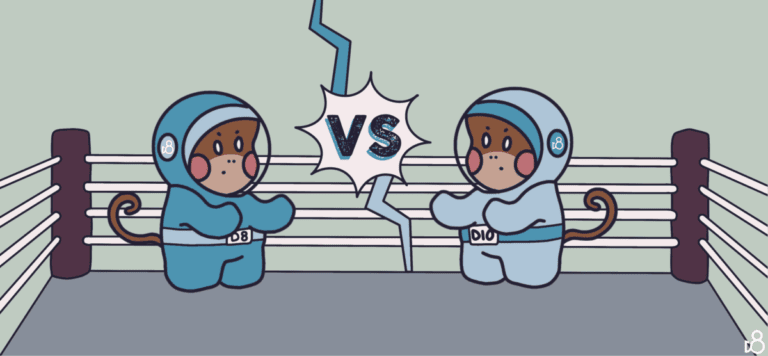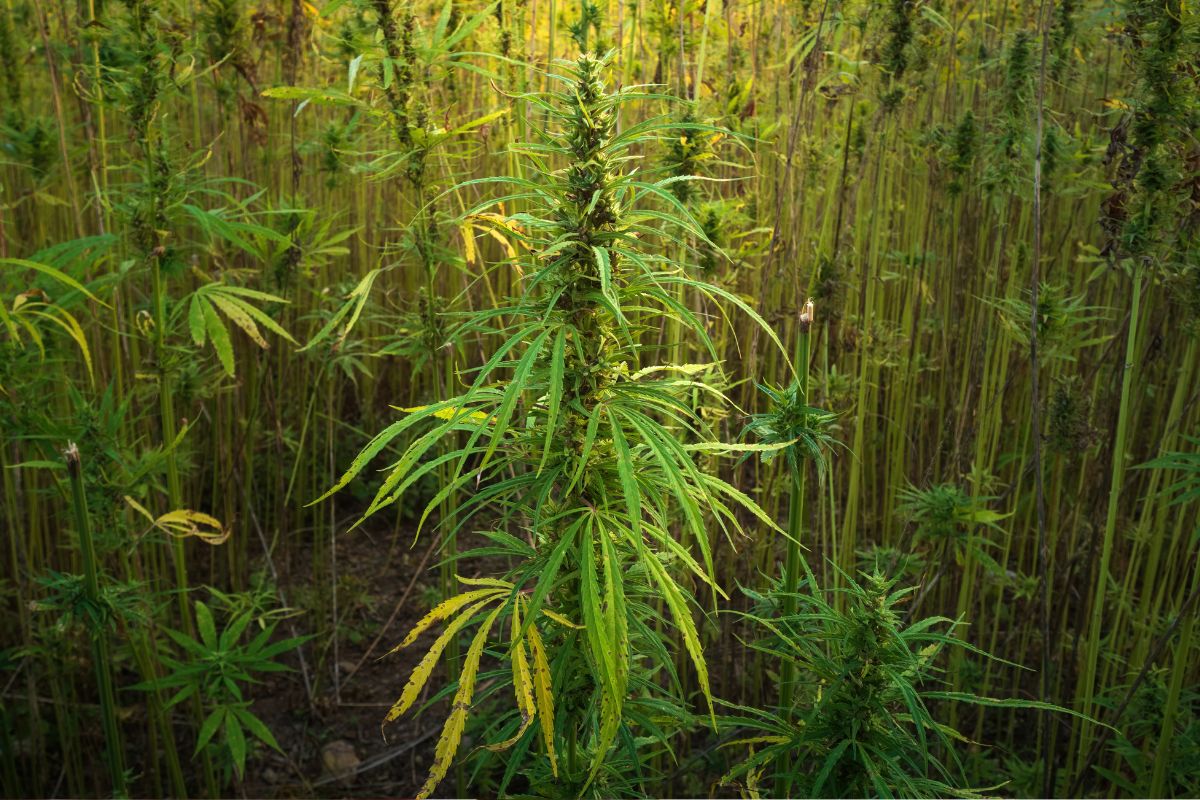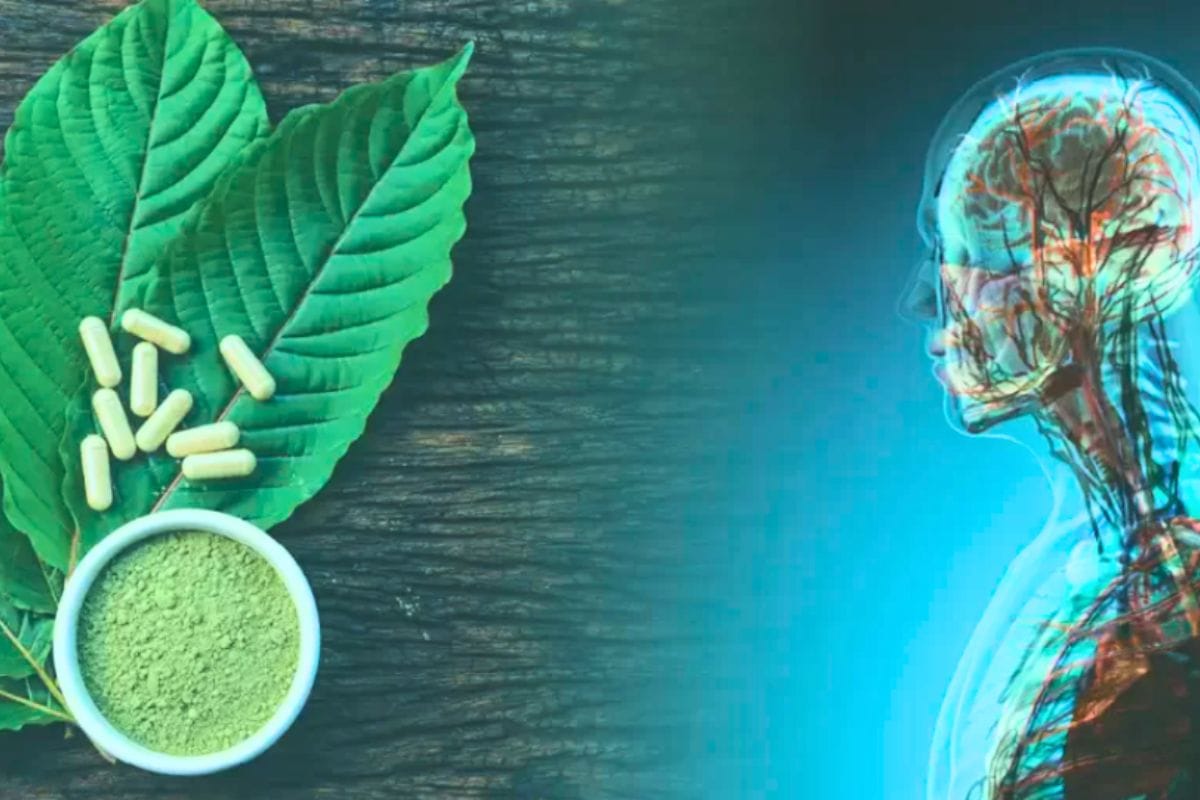Is HHC Stronger Than THC? A Comprehensive Comparison
The world of weed is always changing, with new thrills around every corner! Have you heard about **HHC** yet? It’s the latest gem making noise, rivaling the famous THC from cannabis. Let’s dive into what makes **HHC** stand out and how it measures up against THC, especially when it comes to strength and effects. If the nitty-gritty of these substances and how they play in our bodies tickles your fancy, get ready for an exciting ride. We’re about to reveal some nifty facts and secrets that are usually off the radar! Trust me, you don’t want to miss what’s coming next.
HHC and THC are both psychoactive compounds found in the cannabis plant, with HHC emerging as a viable alternative to THC in terms of legality and certain aspects of its effects. While HHC is stronger than Delta-8 THC, it is not as potent as Delta-9 THC, meaning that it offers a different experience for consumers. Many users have reported that HHC provides similar effects to THC, such as relaxation, sedation, and focus, but with less intense psychoactive sensations.
Key Takeaways
- HHC is emerging as an alternative to THC, offering similar effects with less intense psychoactivity.
- HHC is stronger than Delta-8 THC, but not as potent as Delta-9 THC.
- Both compounds provide various benefits, including relaxation, sedation, and focus, depending on individual usage and sensitivity.
THC and HHC: An Overview
THC (tetrahydrocannabinol) and HHC (hexahydrocannabinol) are both cannabinoids found in the cannabis plant, albeit in different concentrations and with distinct properties. While THC is the primary psychoactive component responsible for the “high” associated with cannabis, HHC is a relatively new discovery that has garnered attention for its potential therapeutic benefits and legal status.
Delta-9 THC is well-known for its ability to treat pain, nausea, vomiting, inflammation, and stimulating appetite1. However, it can also induce psychoactive effects that may be undesirable for some users. In contrast, HHC exhibits a milder, less potent psychoactive profile while still offering potential wellness benefits2. This has made HHC an intriguing alternative for those seeking the therapeutic effects of cannabinoids without the strong psychoactive experience of regular THC.
HHC is roughly 70-80% the strength of delta-9 THC, positioning it as stronger than delta-8 THC, which is about half as potent as delta-9 THC3. Despite these differences in potency, HHC and THC share similar effects and benefits, such as relaxation, sedation, energy, focus, concentration, and promoting sleep. HHC’s unique potency and effects make it an attractive option for individuals who desire a more manageable experience without compromising on the potential benefits.
One significant differentiation between THC and HHC is their legal status. While THC remains federally illegal in the United States and faces varying degrees of regulation in other countries, HHC presents a more legally viable alternative2. This is due to HHC not being explicitly listed as a controlled substance, although its regulatory status may still be complex and subject to change.
In summary, THC and HHC are two distinct cannabinoids with their own strengths and potentials for therapeutic benefits. While THC is the more well-known and potent choice, HHC offers a unique alternative that boasts a milder psychoactive experience and a more promising legal status. As research continues to expand in the field of cannabinoids, a deeper understanding of HHC and its potential applications is likely to emerge.
Structure and Synthesis
Chemical Structure
Hexahydrocannabinol (HHC) and tetrahydrocannabinol (THC) are both cannabinoids found in the Cannabis plant. HHC is an isomer of THC and is structurally similar to both delta-8 THC and delta-9 THC. The main difference between HHC and THC lies in their chemical structures. HHC has additional hydrogen atoms, hence the name “hexahydrocannabinol.”
HHC, delta-8 THC, and delta-9 THC all have a common base structure, but each has a unique arrangement of double bonds and hydrogen atoms. Delta-9 THC has a double bond at the 9th carbon position, while delta-8 THC has the double bond at the 8th carbon position. In HHC, all the double bonds are saturated, meaning that they are replaced with single bonds and extra hydrogen atoms.
Hydrogenation Process
The synthesis of hexahydrocannabinol (HHC) involves the hydrogenation of delta-9 THC. The hydrogenation process is a chemical reaction that adds hydrogen atoms to the double bonds present in delta-9 THC molecules, converting them into single bonds to produce HHC. During this process, all the double bonds are effectively saturated, hence forming a more stable and less reactive compound.
This hydrogenation process alters the psychoactive properties of delta-9 THC, making HHC less potent than its parent compound. Based on available data, HHC is estimated to be roughly 70-80% the strength of delta-9 THC. In comparison, delta-8 THC is considered to be roughly half as potent as delta-9 THC.
The unique chemical structure and synthesis process of HHC contribute to its distinct properties and potency. These factors are relevant to understanding the differences between HHC and THC in terms of strength, effects, and potential therapeutic applications.
Cannabinoid Potency
Psychoactive Effects
HHC and THC are both cannabinoids with psychoactive properties, though they differ in their potency levels. HHC is roughly 70-80% the strength of delta-9 THC, making it a fairly potent compound. However, it is still not as strong as delta-9 THC, which is known for its powerful psychoactive effects. On the other hand, HHC has been found to offer anti-anxiety effects and anti-seizure properties, adding to its therapeutic potential.
Comparing HHC with delta-8 THC, we find that HHC is indeed more potent, as delta-8 is considered to be approximately half as potent as delta-9 THC. This means that those looking for a milder psychoactive experience may opt for delta-8 THC products instead.
Euphoric Experiences
When it comes to producing euphoric experiences, HHC is more psychoactive than THCV, and 30% more intoxicating than delta-8 and delta-10 THC. This makes HHC a suitable alternative for those seeking a balance between the effects of delta-8 and delta-9 THC.
As a natural cannabinoid derived from hemp, HHC offers a slightly different experience than THC, with its euphoric effects being closer to delta-9 THC in terms of intensity. However, it’s essential to use these compounds responsibly and be aware of the potential effects on mental clarity and individual experiences.
In summary, while HHC is not as potent as delta-9 THC, it provides a stronger psychoactive experience than delta-8 and other alternative cannabinoids like THCV. This unique combination of effects makes HHC an interesting option for those seeking a different kind of cannabinoid experience.
Efficacy and Benefits
Pain Relief and Inflammation
HHC and THC both interact with the endocannabinoid system in our bodies, which plays a significant role in regulating pain and inflammation. These cannabinoids have displayed potential for providing pain management and relief, as well as reducing inflammation. However, it is important to note that HHC is approximately 70-80% the strength of THC, making its effects less potent in comparison.
Anxiety and Depression
Both HHC and THC have been known to display properties that might help with anxiety and depression symptoms. HHC, in particular, has antianxiety effects, which can contribute to a decrease in stress and an overall sense of calmness. While THC can also provide relief from anxiety and depression, its psychoactive nature may cause some individuals to experience increased feelings of paranoia or anxiety, depending on the strain and dosage.
Sleep and Appetite Regulation
Cannabinoids like HHC and THC can have an impact on sleep quality and appetite regulation. By interacting with the endocannabinoid system, these cannabinoids may provide increased sleep quality and help regulate appetite, potentially making them useful for individuals struggling with sleep disorders or looking to manage their weight. Although HHC is less potent than THC, both substances can assist in promoting sleep and regulating appetite. However, it is essential to be cautious of potential side effects, such as nausea or vomiting, depending on the individual’s tolerance and the specific strain of the cannabis product being used.
In summary, HHC and THC both possess potential benefits in terms of pain relief, inflammation reduction, and assistance with anxiety, depression, sleep, and appetite. However, HHC’s milder potency means its effects may not be as strong as those experienced with THC. As with any cannabinoid, it’s essential to consider an individual’s tolerance, preferences, and potential side effects before choosing to use either HHC or THC for a specific purpose.
Hemp, Marijuana, and Cannabis Plant Origins
Hemp and marijuana are both derived from the Cannabis plant. Although they share the origin, there are some distinctions between them. The primary difference is their chemical composition, specifically the content of the psychoactive compound, THC.
Hemp is typically defined as a Cannabis plant containing 0.3% or less THC, while marijuana contains a higher THC concentration. Hemp plants are primarily known for their strong fibers, seeds, and their CBD content. These seeds are highly nutritious and can be used as a food source, and their fibers are used for making textiles, rope, and paper.
Cannabinoids, including THC, interact with our body’s endocannabinoid system (ECS). The ECS plays a vital role in various physiological processes, including mood, appetite, and pain response. The primary target of THC is the CB1 receptor, found predominantly in the brain and central nervous system. Binding to CB1 receptors produces the well-known psychoactive effects associated with marijuana use.
Marijuana plants are primarily grown for their bud and resinous trichomes, which contain the highest concentrations of THC. While they also contain other non-intoxicating cannabinoids like CBD, THC is primarily the cause for their psychoactive features. However, marijuana is not only consumed for recreational purposes, but it also has a range of medical applications due to its analgesic, anti-inflammatory, and antiemetic properties.
In contrast, the Cannabis plant naturally contains over 100 cannabinoids, including the lesser-known hexahydrocannabinol (HHC), found in trace amounts. HHC has a unique structure and profile when compared to THC. It is known for its anti-anxiety and anti-seizure properties without necessarily inducing psychoactive effects.
To summarize, the hemp and marijuana plants are closely related in origin, but their chemical compositions and uses differ. Hemp plants contain low levels of THC and are used for their seeds, fibers, and CBD content, while marijuana plants are cultivated primarily for their THC content. CB1 receptors play a crucial role in mediating the psychoactive effects of THC. The Cannabis plant also contains other cannabinoids, like HHC, which have unique pharmacological profiles that warrant further study.
Frequently Asked Questions
How potent is HHC compared to THC?
HHC (hexahydrocannabinol) is a hemp-derived cannabinoid that has psychoactive effects similar to those of THC (delta-9-tetrahydrocannabinol). However, HHC is generally considered to be slightly less potent than THC. Although both cannabinoids produce psychoactive and intoxicating effects, HHC has milder effects that don’t last as long.
Does HHC get you stoned?
Yes, HHC produces psychoactive effects that can get you stoned, although its effects are not as strong as those of THC. Both HHC and THC create a similar experience, with potential feelings of euphoria, relaxation, and heightened sensory awareness. However, HHC is a less potent option and therefore tends to be a milder experience compared to THC.
Is HHC or THC healthier?
There is limited research on the health effects of HHC, so it is difficult to definitively say whether HHC or THC is healthier. Both cannabinoids have been reported to provide soothing wellness benefits, but more studies on HHC are needed to better understand its long-term health effects and potential risks. Always consult with medical professionals when deciding which cannabinoid is the best option for your specific needs.
How much HHC is equal to THC?
There is no precise conversion ratio between HHC and THC, as their potencies can vary depending on individual factors such as tolerance and sensitivity, as well as product concentrations. However, since HHC is considered slightly less potent than THC, you may need to consume a higher amount of HHC compared to THC to achieve similar effects. It’s important to start with a low dosage and gradually increase it until you find the right balance for your individual needs.
What are the side effects of HHC?
Due to the limited research on HHC, its side effects are not fully known. However, since HHC and THC have similar psychoactive effects, one might expect to experience side effects similar to those of THC, including dry mouth, increased heart rate, low blood pressure, memory loss, red eyes, slower reaction times, and tiredness. More research is necessary to confirm these potential side effects of HHC.
Which is better: HHC, THC, or CBD?
Determining which cannabinoid is better depends on your personal preferences, medical needs, and legal constraints. While HHC and THC have psychoactive effects, CBD (cannabidiol) does not produce intoxication but is known for its potential therapeutic benefits. If you seek a milder experience without intoxication, CBD may be a better option. If you want a psychoactive experience, HHC and THC offer different levels of potency, with HHC being milder. Assess your specific needs and consult with a medical professional to help you make the best decision.

